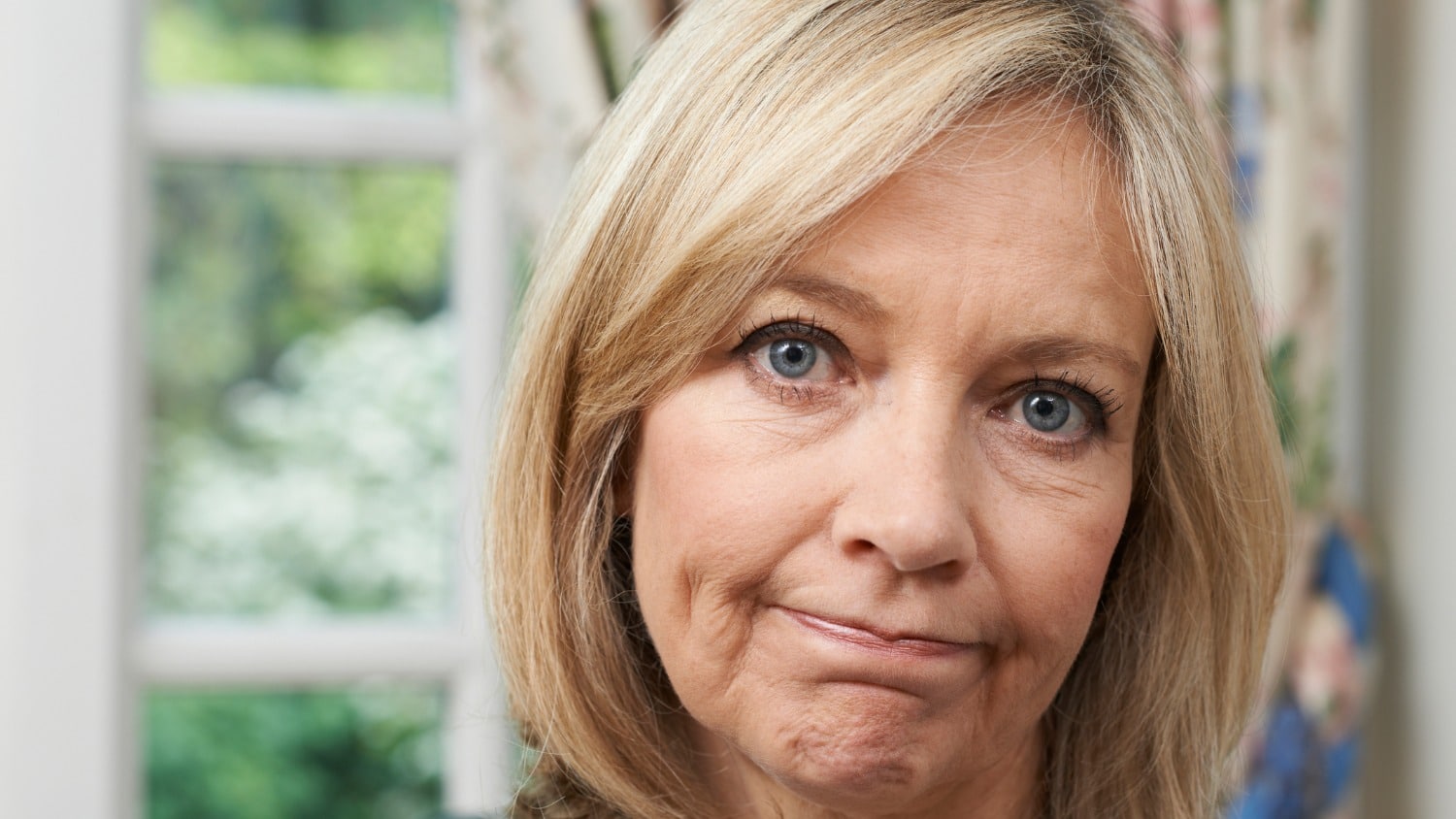
When People Ask About My Estranged Children… What Can I Say?
Being an abandoned mom is more widespread than most people think. When asked about estranged children (parents, or family members), we are put in the awkward position of what to say. Saying too much, not saying enough, or lying can bring up all sorts of questions or guilt, added to how you already feel about this emotional situation.
It’s helpful to figure out what you will say ahead of this question being posed to you. When you’ve rehearsed what you could say, you’re ready when the question comes out of the blue. Your brain will help you by reminding you of your rehearsed answer. We do have options to choose how to answer this question.
Open-Up and Tell the Whole Story
Share incidents that may have caused the division and details of how long it’s been since you’ve been in touch. In doing so be sure you’re ready for intense questions that come back to you from curious people!
Some people related that when sharing details, those who ask, don’t know what to say, and end up giving them the cold shoulder. They may have drawn false conclusions that something must be wrong with you if your kids don’t talk to you now. You must have done something bad.
You could experience this reaction so be ready for the pain it could bring. First, the rejection from the child, then the rejection from those you thought would comfort you.
I have a friend who does this. She shares the whole story, stating that each time she does, she feels better, even if others don’t know what to say back to her. For her, it helps her continue to realize the reality of the estrangement. She has made sharing more about her own mental health, than about the other’s reaction.
Lie and Say Everything’s Just Fine
This does get the person off your radar. They move on to other topics. But do we feel right that we just lied? Maybe. The heart is already hurting and getting the heat off the question feels better.
I don’t advocate this one. Mostly because lying about anything isn’t the path I would want. There are choices you have in answering people, and the choices you make are your personal decision.
Give a Bird’s Eye View of the Child’s Life
“They live in Minnesota, just bought a home, and have a new puppy.” These details need to be honest things you have learned from their friends, other family members or from Facebook. Follow up this bird’s eye view with deflection.
Deflect the conversation by switching it to them or something else. “How’s your son Mark doing?” “What great veggies did you get from your garden this year?” People love talking about themselves and talking about their kids who are succeeding. You have answered their question to the best of your ability and now moved on to something in their world.
Deflecting is a skill for many personal conversations we encounter in life. Whenever someone crosses over into something personal to you, turn it around quickly to something about them.
Briefly Tell Them That You Are Not in Contact and Aren’t Ready to Talk About It
In the syndicated column called Ask Carolyn, she offered this to say to a mom who wanted to know what to do when someone asks about her estranged daughter: “Sadly, my daughter has estranged herself from the family.” Then follow up with, “I’m not ready to share more than that.”
Carolyn goes on to say that negative reactions from people help you weed out those who are not sincere friends to you.
If You Are an Abandoned Parent, Work on Forgiving Yourself
There is no perfect parent. In reflection, I made so many mistakes! I remember a therapist saying to me, the statute of limitations is past for that. You can’t keep bringing your parenting mistakes into the present.
I needed to get to a place of forgiving myself for painful perceived mistakes I made in the parenting job. I try to live this quote, “Don’t let yesterday take up too much of today.”
Try Not to Isolate
If you can, invite new friends and experiences into your life. Keep life exciting in small or big ways. Living under guilt or shame of a child’s estrangement can seep the joy out of the present.
Let Joy Balance the Pain in Your Life
Think about this tip in 50+ Life online magazine. “Nonstop suffering will not bring reconciliation with your adult child, and it certainly impairs the quality of your life. Allow love, fun, and joy into your life – to soothe and strengthen you.”
Below are a few resources that you may want to check out. Be sure that support groups truly support rather than do harm by amplifying agony, fear, or pain. As in any situation, carefully choose your support.
Let’s Have a Conversation:
How do you respond to questions about your estranged adult child? Are you healing over estrangement? Do you have suggestions that would help others heal? What are some of the things you do to feel joy even though you have pain?







Dear Estranged Mother and Father,
For those of you who have been truly abusive, kindly distance yourselves. The remaining individuals, please pause and diligently attend to the following: The actions of your grown child are not a reflection of anything you have done. Your grown child never required a legitimate reason to sever ties with you. Your grown child understands that you are not a narcissist or an abuser.
To your grown child, you represent an easy target. You are readily accessible and a convenient sacrifice. Furthermore, there are countless others like you. This means that your grown child can attain the one thing they desire above all else: witnessing, presuming, and being aware of your suffering in their absence.
They want you to agonize over what you may have done wrong. They want you to invest time, money, and excessive energy into reconnecting with your beloved offspring.
Additionally, your grown child derives satisfaction from discussing with fellow adult children how they have severed ties with you. They claim to seek ‘peace’ and accuse you, as the offending party, of refusing to take responsibility for your actions.
When you attempt to defend yourself, a united group of adult children embark on seek-and-destroy missions to promptly negate any speck of truth you may offer. A collective assemblage of uncredentialed and a few credentialed psychologists, therapists, and psychiatrists dissect each word you utter in order to establish your evident narcissism.
Alternatively, they may assert that you have bipolar disorder or that you are a psychopathic sociopath. Even if you have received a diagnosis ruling out the aforementioned ailments, you (and your psychiatrist, by extension) will not be granted belief.
Furthermore, your grown child will rationalize any parental abuse they inflicted upon you. That time they siphoned money from your bank account? Well, surely that was your fault. You failed to provide them with the extravagant items they desired. Or that instance when they physically attacked you with no provocation? Well, you simply would not cease communication with them. Never will they consider that you were discussing their responsibility to clean up a mess they had left behind.
Neither will they acknowledge the significant property damage amounting to thousands of dollars that they caused in your home. No, to them, you are the problem. You are the parent. Their behavior must inevitably stem from your shortcomings. No, scratch that, it unquestionably originates from your flaws. They will stop at nothing to ensure the world remains ignorant of, or refuses to believe, your account.
At some point, your cherished children held you in high regard. They viewed you as their loving parents and experienced a profound connection and sense of belonging in your presence.Then the advent of social media intervened. They observed other children garnering attention by blaming their parents.
Observing the transition of a ‘my parent is a narcissist’ post, from garnering a mere like to reaching millions, is not an uncommon occurrence. It depicts a frenzied congregation of individuals seeking a sense of unity. The underlying cause is inconsequential; the hunger for belonging and attention-seeking takes precedence.
These individuals are well aware of their influence. Additional parents, often wanting to avoid the same fate, other family members, and strangers hastily join in, condemning you, despite their lack of insight into the true nature of the events that transpired between you and your adult child.
Everyone feels entitled to passing judgment, even without any personal knowledge of you. In this chaos, you unwittingly play your part as well. You plead, you shout, you proclaim, ‘But I am innocent! I did nothing wrong!’ Yet, this is where you falter gravely, as the veracity of your actions holds no significance. It matters not whether you committed any wrongdoing or were an exceptional parent.
The sole relevance lies in the fact that you must be subjected to punishment. Cease this behavior. Release your grip. Parenthood is a lifelong commitment, occasionally accompanied by ease and joy. Witnessing the development of the little, precious being you once brought into this world, watching them excel in academics, embark on careers, enter matrimony, have children, and embrace contented lives, can bring immense satisfaction.
However, there are instances where the path is marred by ugliness. You find yourself discarded like refuse. Blame is attributed to you, falsehoods are spread, trust is shattered, and rejection becomes your unwelcome companion. As a parent, your innate instinct demands that you correct the perceived wrongs, striving to prove to your cherished offspring that you are not their adversary.
Nevertheless, your beloved child has matured into an adult, having assumed their own chosen identity. The arduous endeavor begins now. You must relinquish your hold, severing emotional ties. Embrace your own existence, flourish, discover joy, and reestablish self-belief, perhaps even for the first time.
This is your moment to find your kin. Seek out other parents, akin to yourself, who comprehend that refraining from discussing adult children is often the most prudent course of action for estranged parents. After all, these individuals are now adults, capable of weathering life’s storms independently. It’s ok to let go. The time has arrived for you to embark on your own journey.
Choose you.
Dear I Choose Me,
You have so many nuggets of truth in this post. My hope is that those hurting deeply from estrangement take what they can from it and allows it to heal some of the pain.
Linda
If people ask about my kids, and only grandchild, I tell them the truth. I got tired of my children’s verbal abuse and game playing and emotional blackmail. I won’t be baited into a argument by my DIL’s FB barbs. That I stopped responding to them. My blood pressure got better, I miss the grandchild, but I’ll manage.
Kari, I think you have the right idea. I have 3 estranged adult children, who I strongly believe have been brainwashed by their dad not to respect me or want me in their lives. (They have broken my heart so many times now, I’ve had enough of the pain they have caused me.) Their dad left me and them when he was 43, because of meeting a young woman. He told my 3 kids (aged 13, 10, and 8) he was leaving due to us not getting on. Then walked out, leaving them and me in a right state. He wanted me back after finding out (as he said the grass isn’t greener!) My love for him turned to hate! My eldest wanted to move in with him at 15 yrs, he wanted to be with his dad. He moved out, I didn’t know where the father of my kids lived, and when I saw my son outside his secondary school he ignored me, his friend even said that’s you, mum? I only saw my son when he wanted to use my house for filming (for his filming college course, he used me twice at 2 different houses I lived in just for him and the actors to do the filming. I didn’t see him otherwise. My 2 daughters left me at the age of 17 (on separate occasions.) my middle-aged daughter couldn’t handle me disciplining her after she stayed out in London with her boyfriend and didn’t contact me after the 1st night. I thought something bad had happened to her. She came home at 1 the following morning, and I confronted her after being worried sick all day. She just said, ‘I’m going to dads’ and left and never came back. I confronted her dad when he came to pick up our other daughter and said he should have told the middle-aged daughter that at 17 yrs of age, she should not have gotten in touch to say she wouldn’t be home that day but would be back the next morning. He shouted at me and drove off. (He has never done the disciplining. My youngest daughter left (again at 17) to live with her dad, she said nothing, just went. She has since been back 3 yrs ago to ask for my help (she was close to doing something stupid.) I helped her that day, took her straight to the hospital, and demanded to see the mental health crisis team. Got her the help, then she dropped me again. She did send me a card to say thank you. My eldest estranged daughter came back to see me 3 yrs ago now because she was engaged and going to get married to her fiancee who she had been with since 13 yrs of age (unfortunately her fiancee is another child my x husband brainwashed) as I found out he was slagging me off in a pub and he never came in to see me when dropping her off. My middle-aged estranged daughter (26 yrs old now) gets married this week, I was invited. But told I would have to sit back near the aisle because her dad giving her away. She then told me she didn’t respect me as her mum, as she said I hadn’t tried. She didn’t want me to go, neither did her fiancee. They have broken my heart so many times, I’ve been a good mum. but can’t take no more from their selfishness and I am nearly 60 now. I just wish I never had kids with their dad. He is a manipulating bastard. Who didn’t want me in their lives? Done the job of bringing them up, but now gotta leave the past behind, like a part of my heart has died, unfortunately have never had anyone to help, as mum alcoholic (left on my own as a kid with her) my dad went off with an aunt of mine, selfish old git! My sister, well I never lived with her for long, but she was selfish and controlling. Have tried to re-kindle relationships with family, but hasn’t worked.
Some days I feel that loosing a loved one through death might be easier than an estrangement. (I was widowed at 51.) Pushing through each day & especially holidays without my only child is more difficult than I ever imagined. Therapy helps. I’d like some closure.
Hello, I’m so sorry you are going through this. Unfortunately, this is out of your control, as so many things are with our adult children. I hope you find the peace you need to push through the hard times. Linda
You are so right. I feel the same way. Widows usually know they were loved and that provides some comfort. The complicated grief for a living loved one is a stab in the heart. Give yourself a hug from all of us who know the feeling.
I know it sounds harsh but I think you are right. Losing someone to death is easier (in the long run) as you eventually accept it easier. Therapy does help, but I know it is very expensive for a decent B.A.C.P. Therapist (£50 for 50 minutes usually.) One way I look at it is: ‘It’s like living with a stone in your shoe. The pain is always there, but we have to learn to walk a different way.’ I use a shoe box, to put in all my painful and angry thoughts, writing them down and closing the lid on the box. The tears come and go, especially at certain times of the year (B.Days, Mothers day, Christmas.) Know, I think there are many mums (and dads) living with estranged, adult children. Live each day as the start of our own lives, without thinking or listening to people who don’t understand what it’s like. I understand how hard it is to feel unloved and not respected by adult, estranged children who don’t REALLY appear to care. But lets enjoy life now, and not have to explain to anyone asking about our kids. Just say the truth, but don’t go into detail, say ‘I don’t see them.’ Tell people don’t want to talk about it. Too much hurt there and time gone by to cry anymore. Live for the future now, not the past.